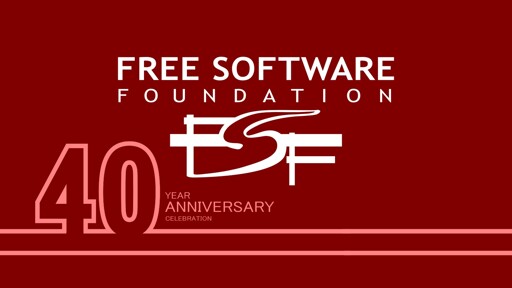The project, developed in partnership with veteran free software developer Rob Savoye, aims to create a fully free and open mobile platform, from the firmware to the operating system.
Very cool
I won’t hold my breadth, but it’s sorely needed, so, we can hope.
As long as y’all maintain your altitude.
And avoid getting raptured. Otherwise we’ll hear no end of your Arch installs.
That’s funny. I can’t hold my width.
Sometimes I can’t hold my
heigdthdepth.You are all out of line
You can hold my girth
And my axe!
Some people can hold their length, but only in private.
Just ask your mom
I really hope this is super based
Why would anyone think that FSF is capable of releasing a unique and good device? It’s gonna be a bog-standard Android device with some software modified/removed.
Might be ok for some people still though. Also I’ll be happy to be wrong about my cynicism.
It’s gonna be a bog-standard Android device with some software modified/removed.
Really? That would be heavily antithetical to everything they do. I expect it would be a Linux distro (like PostmarketOS) with some blobs removed etc.
Because as much as they’re ridiculed today by libcucks of OSS, FSF was a formidable force of software once. At some point in history literally the only way to avoid paying absolutely insane manufacturer license fees for things like compilers was using GNU tools.
If they put their ass into it, they can pull it off tbh
For all of those following, I emailed Rob and he confirmed that the focus of the project to start is reverse engineering binary blobs on existing android devices, but he is currently only at the discovery phase of picking which phones to start with. He is first checking LineageOS compatible phones using his toolset here: https://codeberg.org/rsavoye/librephone/src/branch/main/doc/index.md
I’d rather see a stable OS and ecosystem for good, Free apps that we can flash onto existing devices. I’m quite happy with my Fairphone (repairable! modular! ethical!) and we know that building and marketing a device is painfully expensive.
Let’s make Debian or Arch just work on most phones instead of trying to compete in a saturated market.
Let’s make Debian or Arch just work
Wonder why that’s extremely rare on ARM devices, especially those with modems, and rarely works beyond proof of concepts on some very specific devices? Its not like you’re the first to have this idea.
How old is your oldest working fairphone? I’ve heard too many bad things about software atrophy to declare it a success yet.
I’m using a Fairphone 4, which is 4 years old at this point (October 2021) and I’m still quite happy with it, but I owned the Fairphone 1 and 2 as well.
In terms of software atrophy, they do offer support for your device for 5 years, which is better than most, and because of its open nature, it’s generally well supported by alternatives like Lineage or Calyx, but yeah, I’m still on Android 13. While I still get regular security patches and haven’t really had a need for an upgrade, there’s no denying that the FP4 is behind.
Of course, it’s also easily repairable, supports an SD card and replaceable battery, so that’s a tradeoff I’m happy with.
Do phone calls and RCS work 100% of the time? (I really hope the answer is “yes” because I really want to get out of the closed source ecosystem.)
I’m afraid I have no idea what an RCS is, but maybe that’s a network/region specific thing? I’m in the UK using GiffGaff (O₂) and the phone, SMS, and data works exactly as well as everyone else’s… which is to say perfectly in most places and sporadically on the train due to the dead zones on the route.
Let’s make Debian or Arch just work on most phones
You have no idea how any of it works, do you?
Fighting closed source drivers, blobs, configurations, entitled users who want everything to work perfectly is not a child’s play. Having control over the whole device like this project is huge.
Mobian is Debian designed for phones. PostmarketOS is another project doing the same thing, but with an alpine Linux base.
work on most phones
A lot of the world can hardly get an unlockable phone.
There isn’t much concrete information, but my guess is that OS/ecosystem is exactly what this project is, and that they are not talking about physical hardware. Specially considering that they are putting the emphasis on free software (not hardware) and they are involving a software developer. Making a phone’s hardware free would be an entirely different beast.
In the afternoon, FSF executive director Zoë Kooyman announced an exciting new project: Librephone.
Librephone is a new initiative by the FSF to bring full computing freedom to mobile computing environments. The LibrePhone Project is a partnership with Rob Savoye, a developer who has worked on free software (including the GNU toolchain) since the 1980s. “Since mobile phone computing is now so ubiquitous, we’re very excited about LibrePhone and think it has the potential to bring software freedom to many more users all over the world.”
F-droid maybe we’ll find a new good home then?
F-droid for Waydroid enabled Linux phones?
- small userbase
- high resource usage
F-droid for AOSP Android
- still dependant on Google
Honestly, I prefer flatpaks with all the drawbacks, give me 100% freedom while providing Android like comfort… Like the new xdg permissions portal.
If the price is no good maps or banking apps, I’ll gladly pay it. I just wish the graphene team worked on linux instead.
They in cahoots with androids killin aosp?
It’s wise to question motives but in this case I get the feeling they’re the good guys.
I forgot the /j
They in cahoots More like they’re mobilizing to counteract Android’s killing of AOSP.
This is 1000% what I was trying to imply, but the downvotes reflect many didn’t get it ig😆
I can’t find any links to the project itself, only to announcements about the project. Anybody have anything more concrete? How far along is this project?
Interesting interview with FSF’s new Executive Director Zoë Kooyman if you are curious about her/where the organization is at.
https://fossforce.com/2025/03/zoe-kooyman-on-post-stallman-changes-at-the-free-software-foundation/
My hopes and my expectations could not be more at odds with each other, and the only thing I know for sure is that one of them will be smashed.
As they would say: keep your hopes up and your expectation low to the ground
Honestly as long as they can fucking get something moderately priced that supports VOLTE and a decent camera I’ll buy it
gimme gimme
Linux mobile phones are the fusion power of the FOSS world, always right around the corner.
All the pieces are there, but none of them work together smoothly enough to be functional for anybody except the most hardcore FOSS enthusiasts.
When Proton started, it was kind of a joke, killed the Steam Machine idea in large part because the game compatibility was so limited. A decade later, we have a multi billion dollar handheld PC market lead by the Steam Deck, a Linux handheld that can play tens of thousands of Windows games without issue, in some cases with better performance than their native platform.
So it’s certainly possible for things to completely change, but we need a big player or consortium of players to unite with a shared goal of getting a Linux Phone to the state where it’s genuinely able to replace a traditional Android or Apple phone.
I’m very cautiously optimistic, I think it would come together much faster than Proton did for Linux gaming, but again, there needs to be a really heavy push into a singular device to start off. Like how the Steam Deck was, it allowed devs to have a singular platform to target for compatibility. Then, as the platform matures, competitors & innovators can enter the market and expand options, like how now there are multiple distros with builds for handhelds, like Bazzite, Nobara, and CachyOS.
At this point I would not be surprised if steam built on top of the deck idea and the support it already provides for fairly responsive and configurable inputs, touch screen included, to launch a steam phone or something.
I mean deck isn’t all that far from having such a device. For the actual phone network stack they would likely just partner up with someone already in the space.
They’ve already had to tackle powering a lightweight portable device with a touch screen and adapting the UX for a small screen and non-kbd input. They’ve already established they can source parts and mass produce a competively priced device.
But realistically I can’t see it being that much better than the recent Linux phone offerings.
None of what you described is an issue with Linux phones.
We need open firmware for broadbands.
Yeah well, this is of course just a singular anecdote, but my experience with any touch-based de on Linux hasn’t been great.
No Linux phone I have ever seen has had a particularly competitive pricing. Or specs.
But perhaps there has been some major advancements I’m not aware of in the past week.
In any case, your latter point is true.
When Proton started, it was kind of a joke, killed the Steam Machine idea in large part because the game compatibility was so limited. A decade later, we have a multi billion dollar handheld PC market lead by the Steam Deck, a Linux handheld that can play tens of thousands of Windows games without issue, in some cases with better performance than their native platform.
Proton’s existence did not overlap the existence of the Steam Machine program, like at all. Proton’s initial release was on the 21st of August 2018. Steam Machines were first released in 2015 and had been delisted from Steam entirely by April 2018.
Wine existed back then, sure, but Steam Machines didn’t benefit from DXVK, VKD3D, or any of the myriad per-game and gaming-oriented tweaks that Valve and Codeweavers have made to Wine in the version bundled with Proton. For most people, the prospect of using Wine on a Steam Machine was a huge pain at best. Valve’s official position at the time was that they were helping pay for Linux ports of games.
Fair point, I thought Proton went back farther than that.
I think my overall point is right still though, Linux gaming (native or otherwise) has become not just viable, but in some cases objectively superior to gaming on Windows in terms of raw performance. Pretty amazing, and in even less time than I originally thought lol.
Yeah. It’s improved by leaps and bounds since DXVK and VKD3D came into existence. Wine was already incredibly robust and powerful with like 20 years of development on it, so Proton combining Wine with those other 2 projects for better DirectX support and then also managing Wine prefixes and tweaks automatically brought us from “if you’re persistent and tweak a lot of settings a good chunk of games work” to “most games just work”, and now even “if a game doesn’t work on Linux now it’s because the devs are blocking it actively”
And of course, Valve’s active financial support and direct contributions to all of the projects involved has improved the reliability and performance of all of the tech involved by leaps and bounds.
I would love if Valve shipped and contributed to Plasma Mobile and Plasma Bigscreen alongside the existing Plasma Desktop. Or even if more Steam Deck users installed it so that it would get more interest.
Bazzite sounds like it would be a good start for the OS, though, and that exists now.
Let’s hope this lights a fire under Google’s ass too, so everyone can have free and open phones.













